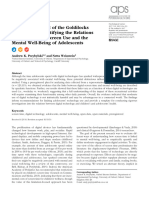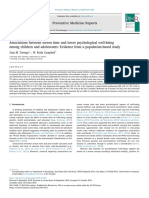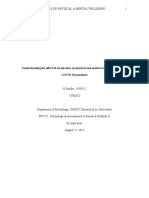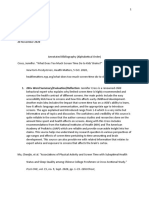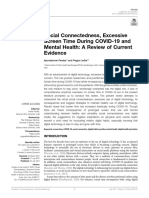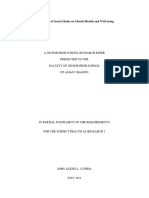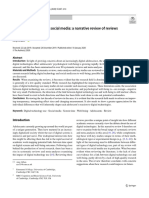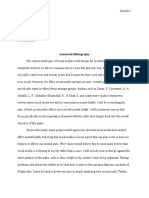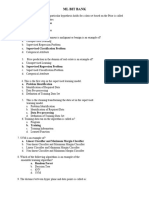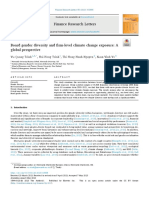0% found this document useful (0 votes)
13 views6 pagesConcept Paper
This concept paper explores the correlation between daily screen time and mental well-being, aiming to quantify the negative impacts of excessive screen usage on psychological health. The study will utilize regression and correlation analyses to investigate this relationship and provide actionable insights for promoting healthier digital habits. It addresses existing research gaps by focusing on the direct effects of screen time on mental well-being, involving a diverse sample of participants.
Uploaded by
Radia MacareCopyright
© © All Rights Reserved
We take content rights seriously. If you suspect this is your content, claim it here.
Available Formats
Download as DOCX, PDF, TXT or read online on Scribd
0% found this document useful (0 votes)
13 views6 pagesConcept Paper
This concept paper explores the correlation between daily screen time and mental well-being, aiming to quantify the negative impacts of excessive screen usage on psychological health. The study will utilize regression and correlation analyses to investigate this relationship and provide actionable insights for promoting healthier digital habits. It addresses existing research gaps by focusing on the direct effects of screen time on mental well-being, involving a diverse sample of participants.
Uploaded by
Radia MacareCopyright
© © All Rights Reserved
We take content rights seriously. If you suspect this is your content, claim it here.
Available Formats
Download as DOCX, PDF, TXT or read online on Scribd
/ 6











